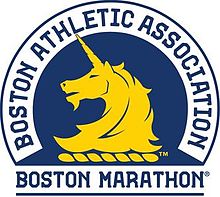Boston Mayor Marty Walsh announced last March 13, to postponed the Boston Marathon, due to alarming concerns for the COVID-19 pandemic.

Boston Marathon is an annual marathon race hosted by several cities in greater Boston in eastern Massachusetts, United States. It begun in 1897, which inspired by the success of the first marathon competition in the 1896 Summer Olympics.
The Boston Athletic Association, which oversees the marathon, had a a decision to postponed the event until September 14, 2020.
But pressure had mounted from officials in Boston and the seven cities and towns along the 26.2-mile course. Some had expressed worries not only for the health of the 31,000 registered runners but also the estimated 1 million spectators who traditionally line the route, giving athletes hand slaps, high-fives and even kisses as they pass.
Walsh said “We want to make sure that we keep people safe.” He stressed that people shouldn’t attempt to run the race course in April when the marathon would have taken place, as some in the running community have suggested.
President Donald Trump’s order restricting most Europeans’ travel to the United States over the coronavirus complicated efforts to salvage the race. Thousands of runners come from Europe to compete at Boston.

The Boston Marathon has never been canceled outright since its first running in 1897, though there was a de facto cancellation in 1918, when the end of World War I and a global influenza pandemic prompted organizers to switch to a relay race format.
It wasn’t an easy decision, Walsh said the marathon pumps $211 million per year into the city’s economy — not counting the millions more that runners raise for charities.
Massachusetts Gov. Charlie Baker had declared a state of emergency, and race organizers had said they were in close contact with the federal Centers for Disease Control and Prevention and the World Health Organization.
Sources: espn, wikipedia, theguardian.com,
Photo Sources: wbtw.com, theguardian.comm, foxnews






